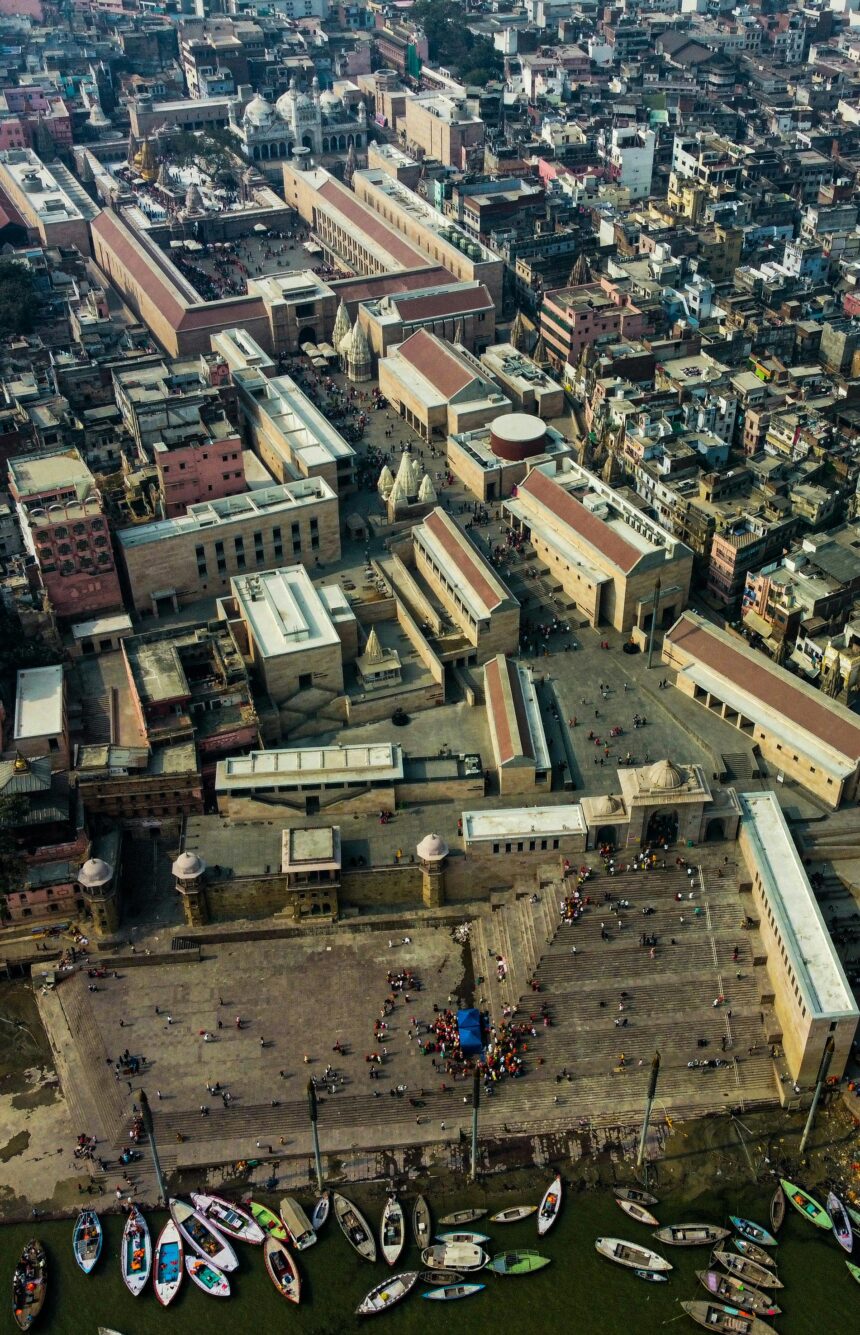Two Worlds, One State
Uttar Pradesh, India’s largest state by population, represents a complex tapestry of contrasting ideologies, particularly when it comes to rural and urban progress. While urban centers like Lucknow, Noida, and Kanpur are hubs of modernization, technology, and infrastructure development, rural areas still cling to traditional philosophies and lifestyles. This dichotomy raises critical questions about development: Can Uttar Pradesh bridge the philosophical and practical divide between its rural and urban identities?
Urban Progress: A Philosophy of Aspiration and Modernity
Urban Uttar Pradesh is defined by a forward-looking philosophy, heavily influenced by globalization, market economies, and digital advancements.
1. Infrastructure and Technology
- Key Achievements: Cities like Noida and Ghaziabad have seen exponential growth with IT parks, expressways, and high-speed internet connectivity.
- Economic Focus: The urban philosophy prioritizes economic growth, evident in the state’s industrial hubs contributing to ₹21 lakh crore GDP (2021-22, Uttar Pradesh Economic Survey).
2. Individualism and Consumerism
- Urban residents increasingly embrace a culture of individualism and consumerism, driven by higher education levels and exposure to global trends.
- Example: The rise of malls and luxury housing in cities reflects a shift toward material prosperity, diverging from the communal ethos still prevalent in rural areas.
3. Policy Alignment
- Digital Uttar Pradesh Initiative: Urban areas have benefited significantly from the state’s push for e-governance, with over 70% of urban households accessing digital services, compared to 25% in rural areas(NITI Aayog, 2023).
Rural Philosophies: Anchored in Tradition and Community
In stark contrast, rural Uttar Pradesh, which houses over 75% of the state’s population, adheres to deeply ingrained traditional values shaped by agriculture, religion, and caste-based social structures.
1. Community Over Individualism
- Social Philosophy: Villages prioritize collective decision-making and interdependence, often mediated by local panchayats.
- Challenges: This communal approach sometimes clashes with modern individualistic policies, leading to resistance against land acquisition or industrialization projects.
2. Agriculture-Centric Lifestyles
- Agriculture remains the backbone of rural Uttar Pradesh, employing 60% of the rural workforce (Agricultural Census, 2021). The rural philosophy is rooted in living harmoniously with nature, contrasting the urban focus on industrial growth.
3. Resistance to Change
- Despite government programs, rural areas often resist rapid modernization due to a lack of infrastructure, education, and trust in external systems.
- Example: Many farmers have protested initiatives like the Ganga Expressway, fearing displacement and loss of livelihoods.
Key Areas of Dichotomy
1. Education and Literacy
- Urban Focus: Urban centers prioritize career-oriented education, with a literacy rate of 81% in cities like Lucknow and Noida.
- Rural Reality: In rural areas, literacy stands at 67%, with education often limited by patriarchal norms and economic constraints (NFHS-5).
2. Healthcare Access
- Urban Progress: Cities boast multi-specialty hospitals and telemedicine facilities, catering to a digitally connected population.
- Rural Challenges: Over 40% of villages in Uttar Pradesh lack primary healthcare centers, resulting in higher dependency on traditional healers or long-distance travel for medical emergencies (NITI Aayog, 2023).
3. Economic Opportunities
- Urban Economy: Industrial zones and IT parks in cities create diverse job opportunities.
- Rural Economy: Villages rely heavily on seasonal agriculture, with underemployment and migration to cities being common.
Philosophical Implications of the Divide
1. Clash of Values
- The urban push for individual success and consumerism often conflicts with rural values of sustainability and community well-being.
- Example: Urban projects like malls and expressways displace rural communities, disrupting their philosophical and physical ecosystems.
2. Dependency vs. Independence
- While rural areas depend on nature and traditional systems, urban areas are built on technological and economic independence, creating a philosophical chasm in the approach to progress.
3. Inequality as a Consequence
- The emphasis on urban development risks exacerbating inequalities, with rural areas feeling left behind in the narrative of progress.
- Data Insight: According to the Uttar Pradesh Human Development Index (2022), urban areas score 0.7, while rural regions lag at 0.5, reflecting disparities in quality of life.
Bridging the Divide: A Harmonized Approach to Progress
To align the philosophies of rural and urban Uttar Pradesh, development must integrate traditional wisdom with modern practices.
1. Inclusive Policies
- Recommendation: Policies like One District, One Product (ODOP) should ensure rural artisans and agricultural workers benefit from urban markets, fostering interdependence.
- Example: ODOP has already boosted handloom exports from rural districts like Varanasi, contributing ₹10,000 crore to the state economy in 2022.
2. Rural Modernization Without Displacement
- Focus on rural development projects like electrification, digital literacy, and sustainable farming practices to bring modernization without disrupting rural lifestyles.
3. Education and Skill Development
- Bridge the rural-urban gap by introducing skill-development centers in villages that align with urban industry needs, reducing migration and creating local opportunities.
4. Community-Driven Urbanization
- Involve rural communities in urban planning processes, ensuring projects address their needs and values.
Conclusion: A Path Toward Unified Progress
The dichotomy between rural and urban philosophies in Uttar Pradesh reflects the challenges of balancing tradition with modernity. While cities embody aspirations of growth and technological advancement, villages hold the wisdom of sustainability and community living.
To truly progress, Uttar Pradesh must embrace its dual identity, crafting policies and projects that harmonize rural resilience with urban ambition, ensuring equitable development for all.


Leave a Reply